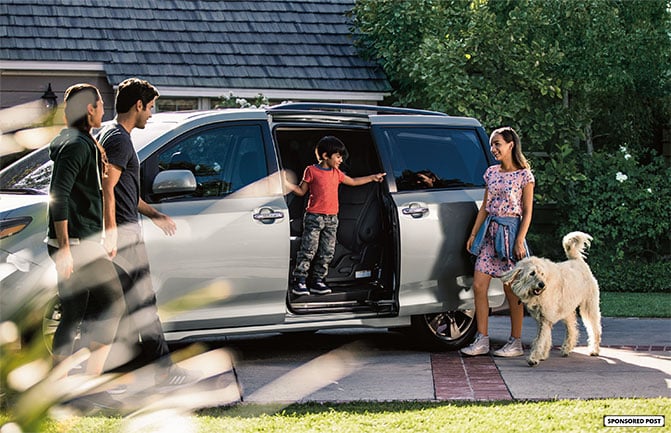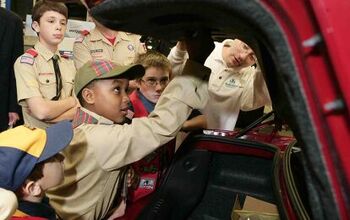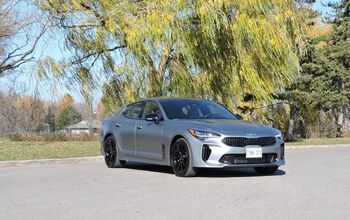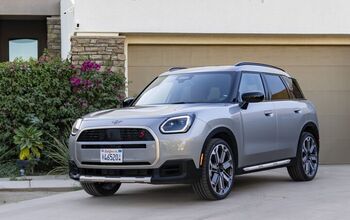Child Safety In (and Out of) The Car
Driving has become such a normal part of our everyday lives that it’s easy to forget the risks we take when getting into a vehicle. While some take safety to heart at an early age, it can be an eye opener for others when they become parents and begin a journey with their precious cargo. Luckily, the rules for keeping your children safe while driving are the same for safe driving in general, but car safety also extends beyond on-the-road practices. Knowing how to keep your family safe in, out, and around your vehicle will help instill good safety habits in children, ease stress and worry in parents, and reduce the number of accidents your family is involved in overall.
ON THE ROAD
Driving defensively is the first line of defense when it comes to keeping children safe in the car. Follow all road signs and speed limits, and keep an eye out for unexpected traffic, obstacles, and warnings. When you expect other drivers to make mistakes you drive with an abundance of caution, avoiding tailgating, watching your blind spots, signaling, and yielding. Remember, though, that driving defensively doesn’t equate to being timid on the road—it is important to drive with confidence without giving into aggression.
We all know to avoid distractions while driving, but that can be easier said than done when there are children in the car. Allowing books or other quiet entertainment or playing established car games that don’t require much of your attention will help keep children occupied. Instilling good car behavior at a young age will help avoid horseplay as kids get older, making car rides more enjoyable for all involved. Everyone in your vehicle should be buckled up at all times with their own seatbelt. And according to the American Academy of Pediatrics children under 13 or under 4’ 9” tall should ride in the back seat with a fitted child seat or anchored booster. You’ll also want to emphasize to your children the importance of following your family’s “car rules” regardless of whose vehicle they are in or who’s driving it.
AROUND THE CAR
Cars can be hazardous even when they aren’t in motion, particularly when kids are young, but simple preventative measures will help your avoid most accidents. Do not let children play around parked cars, and always take a moment to check around your vehicle and in the driveway before starting your car. You can even establish a “safe spot” for kids to stand in when a nearby vehicle is about to move. Hold your kids’ hands when in parking lots and driveways, and make sure children know to look both ways before stepping into any street. Be cautious with any automatic features on your vehicle—automatic child safety locks could inadvertently trap a kid in a vehicle and power windows have enough force to injure or kill children.
Kids are often most at risk during the warmer months when cars can heat up quickly, regardless of whether or not the vehicle is running. If you have small children, you should consider side shades to reduce direct sunlight exposure. NEVER leave children alone in or around cars, even if the car is left running. To ensure that kids don’t find their own way into hot vehicles, always lock your car, and make sure kids don’t have access to remotes. Finally, call 911 immediately if you see a child alone in a car—especially if they appear distressed or unresponsive.
LONG HAULS
Long road trips can be an affordable way for families to travel together but can easily cause tension and troubles without proper preparation. It’s a good idea to break up your drive ahead of time, and to align your driving scheduling with your family’s existing habits. Dividing up the journey into manageable segments with rest stops for eating and playing lowers the risk of injury or choking that comes with eating in the car. Choosing to stop for the night will help keep everyone’s circadian rhythms intact and will keep you off the road at a particularly dangerous time for driving.
It’s always best to avoid driving alone with small children—being forced to divide your attention between the road and your child could lead to distracted driving and potential accidents. Take a friend or family member along when possible and consider having someone ride in the backseat for at least part of your trip to keep an eye on any children that are travelling with you. Having someone else in the car to handle any requests or issues that arise will allow you to stay focused on driving.
Even the most cautious drivers following all the rules are susceptible to accidents on the road. To make sure your family in protected, always keep your car insurance up to date with your latest vehicle and personal information. Unsure if your current coverage is enough for your family? Our agency can help with Auto, Home, Boat and more. You can chat with a licensed independent insurance agent @ 833-879-8467, or get a quote online in minutes.
*This is a sponsored article
More by AutoGuide.com News Staff




































Comments
Join the conversation